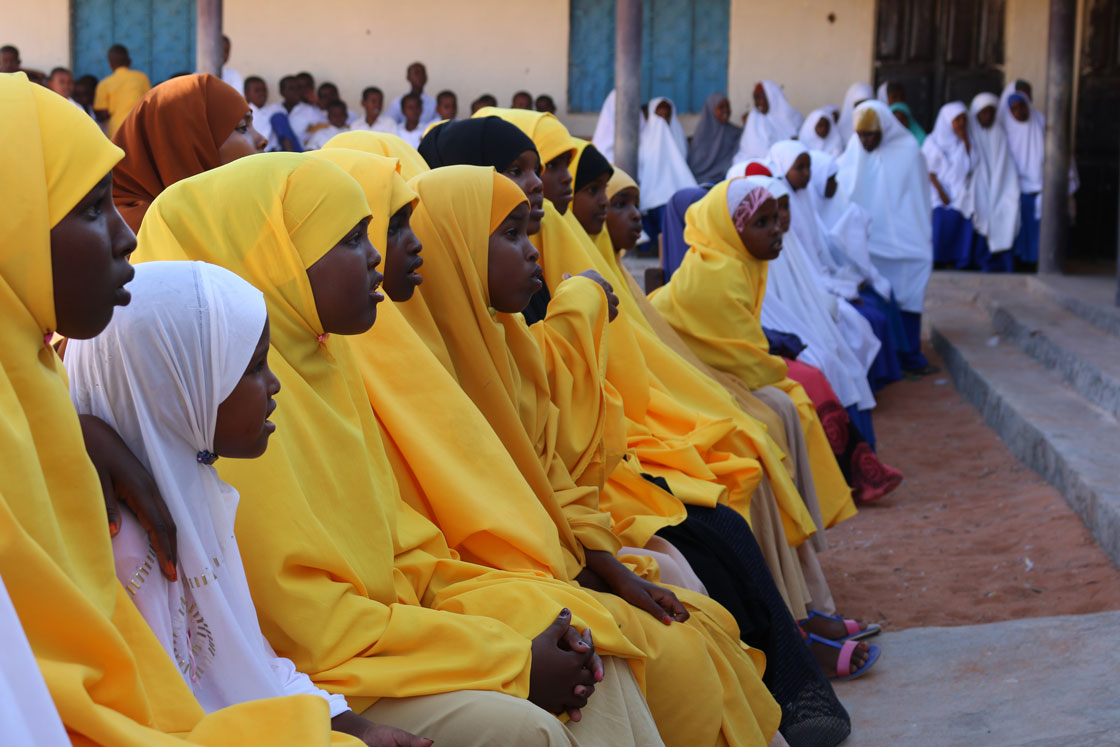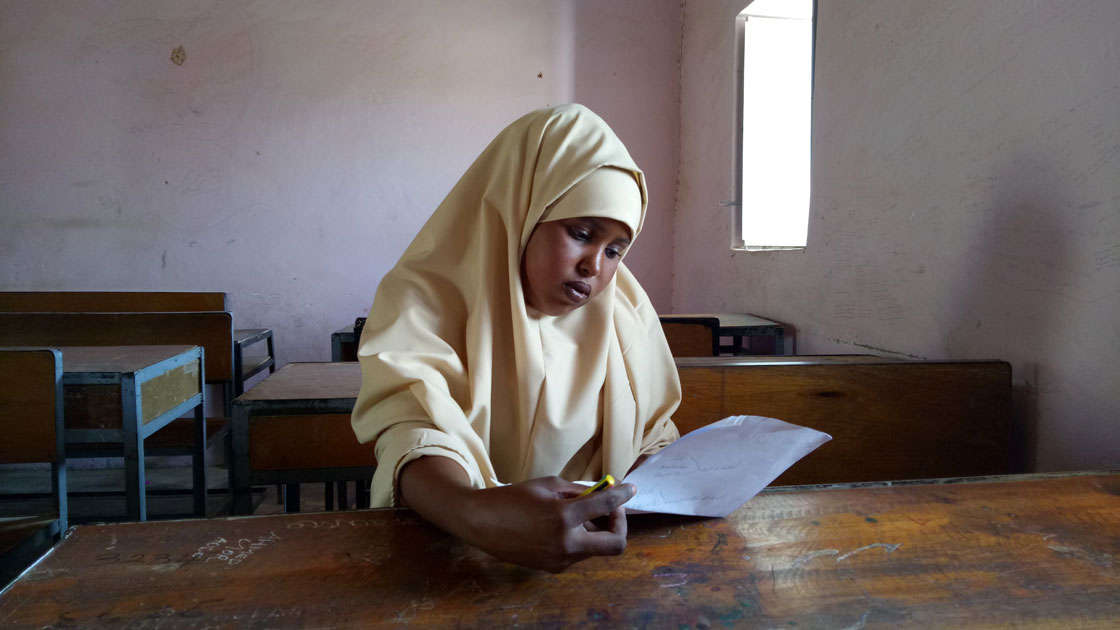In response, Relief International has implemented the Educate Girls, End Poverty program, providing Somali girls with the opportunity to receive an education and break the cycle of chronic poverty.
Like many young girls, Ifrah Ahmed faced significant barriers to pursuing an education in the city of Garowe, located in northeastern Somalia’s Puntland State. Currently, just 40 percent of all girls attend primary school in Somalia.
After Ifrah’s father passed away, her mother Suways struggled financially. Despite owning a small shop in their village, she could not afford to pay school fees for seven children and put food on the table.
“It was a dark day for us when my father died,” said Ifrah, who was sent away from school for not paying her fees.
During those times, Ifrah feared her education — and future dreams — were vanishing. Now she is one of 66,000 girls across Somalia who have received assistance from Relief International’s Educate Girls, End Poverty program.
“This was a new dawn for me,” she said. “Relief International supported me with school fees for a period of four years and a uniform. I also participated in social development activities that boosted my self-esteem and confidence.”
With her time freed to focus on learning, not finances, Ifrah excelled in school. She passed the 2017–18 National Grade 8 Exams with high grades and is attending Gambol Secondary School with the support of a school fee waiver.
Closing the Gender Gap in Education
Throughout Somalia, violence and extreme poverty have left deep scars, forcing many families to choose to keep their girls at home instead of in school. Additionally, many families hold deeply-rooted beliefs about gender roles in the household that determine whether or not girls attend school.
In response, Relief International has implemented the Educate Girls, End Poverty program since 2007 with support from UK AID and in partnership with two other development NGOs. The aim is to overcome political, economic, and cultural norms by providing Somali girls with the opportunity to receive an education and break the cycle of chronic poverty.
We’re building safe and inclusive learning environments at 227 primary and secondary schools across the country by training more qualified female teachers and working with boys to understand the value of girls and women in their society.

These schoolgirls are on the path to better gender equality in Somalia, where just 37 percent of girls attend primary school.
© RI
Somalia’s Next Generation of Female Doctors
Today, Ifrah’s dreams are reignited and her confidence shines as she shares her hope to be a medical doctor — another space typically dominated by men in Somalia. She says, “I want to be of help to my community in the future because they need me, they need a female doctor!”
Ali Ibrahim Hussein, head teacher at the Gambol Secondary School in Garowe, says Relief International continues to empower more girls to dream big like Ifrah. “Girls have ambitions when they arrive in secondary schools. The majority of them aspire to become doctors in the future. For them to be able to realize their dreams, they require sustained support both through motivation and reminding them not to drop out, while also assisting them financially through fee support,” said Ali.
The Educate Girls, End Poverty program is essential to turning those dreams into realities. More than 90 percent of girls enrolled in our program have stayed in school for three years or more.
Ifrah also does her part to keep up the program’s successes, and advocates for girls’ educational opportunities by sharing her experience with the Educate Girls, End Poverty program. She even appears on a local radio show alongside other program participants.
“Education is very important for us,” says Ifrah. “We are the changemakers for the future generations to come.”
As Relief International continues working hand-in-hand with students, parents, teachers, community leaders and government ministries to educate tens of thousands of girls in Somalia, a future of equality and prosperity looks all the more possible.
